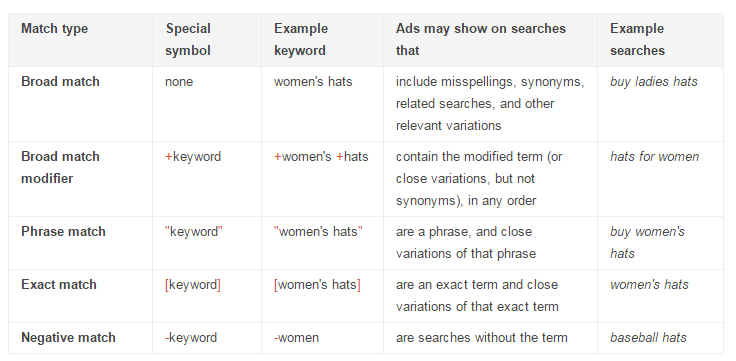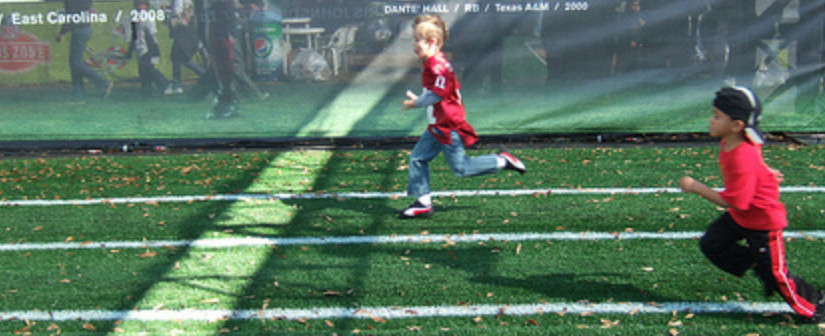Plaintiffs’ firms are devoting millions of dollars to paid search ads. However, most of the time, their lack of knowledge about managing paid search campaigns results in a ton of waste. One of the sources of this waste comes from a lack of understanding about keyword matching options.
We talk to plaintiffs’ firms just about every day on the subject of paid search advertising. If you’re completely new to paid search advertising, spend some time in AdWords Support and check out this post too.
Our conversations with plaintiffs’ lawyers tend to follow a few general patterns:
- “I tried AdWords, it was a huge waste of money.“
- “I hired someone to do AdWords for me, I don’t really know what happened.“
- “People don’t use the internet to hire lawyers.“
Over the years, we’ve been having fewer #3 conversations. Most lawyers have recognized how pervasive the internet and search engines have become in all of our lives, including their audience of potential clients.
If you’ve hired paid search managers (or outsourced this work to an agency) there’s really no excuse for not knowing what happened. If you feel like you’ve been blindfolded, it’s time to reconsider your expert.
The overwhelming majority of lawyers we speak have tried AdWords on their own and concluded that it’s largely a waste of money. There are a variety of reasons that this happens. Today, I’m just going to focus on one: keyword match types.
Overview of AdWords Keyword Matching Options
AdWords Support says the following about using keyword matching options:
Keyword match types help control which searches can trigger your ad. For example, you could use broad match to show your ad to a wide audience or you could use exact match to hone in on specific groups of customers.
In general, the broader the keyword matching option, the more traffic potential that keyword has. Conversely, the narrower the keyword matching option, the more relevant that keyword will be to someone’s search. Understanding these differences can steer you in choosing the right keyword matching options and can help you improve your return on investment.
Put simply, match types set the rules for which search queries your ads are shown. Let’s take a look at what match types are available in AdWords:

In the context of advertising a plaintiffs’ firm, you might bid on keywords like:
Broad match: personal injury lawyer
Phrase match: “personal injury lawyer”
Exact match: [personal injury lawyer]
In this example, the broad match keyword, personal injury lawyer, will also likely match to searches for:
personal injury attorneys
personal injuries lawers
law firms for injured
As you can see, this is the most inclusive form of keyword matching.
Next, the phrase match keyword, “personal injury lawyer,” will match to searches for:
personal injury lawyer in chicago
chicago personal injury lawyer
los angeles personal injury lawyer
However, ads would not be shown for:
personal injury lawyers
personal injury attorney
injury attorneys
As you can see, ads will only be displayed for searches that contain the phrase between quotation marks (hence, phrase match).
At the opposite end of the spectrum from broad match, is exact match. The exact match keyword, [personal injury lawyer], will only match to the search:
personal injury lawyer
With exact match, ads will not be displayed for any variation of this query.
Now that you have a sense of how the major match types work, let’s look at how waste is created.
How Plaintiff’s Firms Create Waste in AdWords
Some lawyers will reason that they, “don’t want to miss that next million-dollar case.” So, they’ll take a very inclusive approach to their keyword targeting. They’ll primarily bid on broad match keywords. In fact, many will open up the flood gates beyond keywords that are modified by “personal injury.” For example, they might bid on:
lawyer
lawyers
attorney
attorney
law firm
law firms
Needless to say, they’ll spend a lot of money very quickly. Because they are casting such a wide net, they’ll likely acquire clicks from users who are unlikely to convert into inquiries and clients for a host of reasons.
Some may try to qualify clicks with ad copy. In other words, they’ll serve their ads to people searching for lawyers generally, but then indicate that they only help victims of injuries in their ads. Their intention is to dissuade people searching for various other types of lawyers from clicking their ads.
They are a bunch of issues with bidding like this. However, one of the biggest problems is that it’s likely to crush quality score. If you read the post I linked to earlier, you know that quality score can impact the price you pay for a click.
While there are many factors that Google uses to determine quality score (QS), one of the most significant is click-through rate (CTR). This is a comparison of the number of times an ad is shown (ad impression) versus the number of times it is clicked. It is usually expressed as a percentage, so the most common CTR formula looks like this:
CTR = (# of clicks) / (# of impressions) * 100
Let’s go back to our example of the plaintiffs’ firm that’s bidding on the broad match term, lawyer, and trying to qualify clicks with an ad that says something like:
Injured? Get Help. Free Consultation w/a Personal Injury Lawyer!
Many of the people who searched using the term lawyer, probably weren’t looking for a personal injury lawyer. Therefore, they would be unlikely to click on an ad that speaks to injury victims.
As you can see, this would increase the number of times the ad is shown (impressions), but not increase the number clicks. Hence, this method of advertising would drive down CTR, in turn, drive down QS, which would drive the cost per click (CPC) up.
Put simply, the firm may end up paying more for its clicks than it ought to be.
This is just one very basic example of how plaintiffs’ lawyers can create inefficiencies in their AdWords accounts that create waste.

